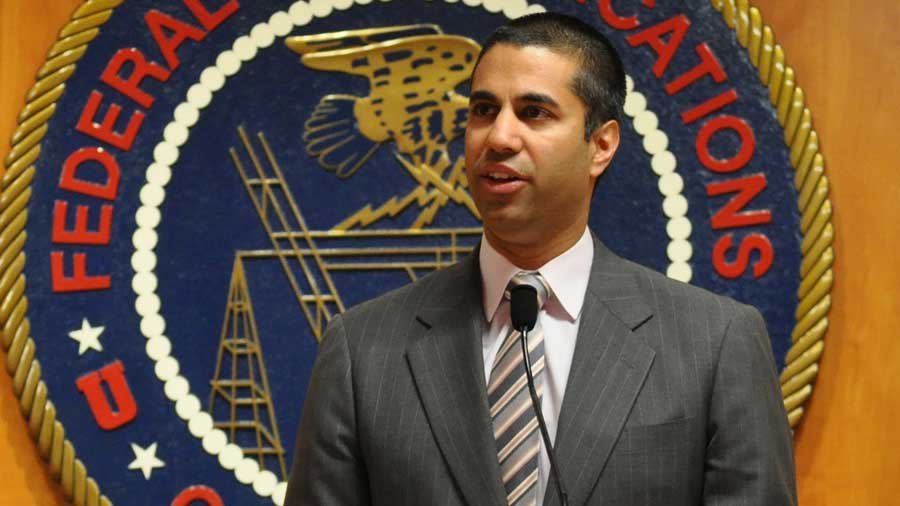Pai Praises Broadcast First Informers

The smarter way to stay on top of broadcasting and cable industry. Sign up below
You are now subscribed
Your newsletter sign-up was successful
FCC chairman Ajit Pai said Thursday (Jan. 18) that FCC staffers are currently "on the ground" in Hawaii gathering info on the erroneous ballistic missile warning issued by state officials over the weekend.
The warning was relayed by broadcasters as well as via cell phones.
Pai, in a speech kicking off a forum on broadcast emergency communications at the National Association of Broadcasters headquarters in D.C., said that those investigators were looking to find out 1) how it happened; 2) why it took 38 minutes to for the state to issue a correction and, 3) how to make sure it never happens again.
Pai made it clear he was not attacking the messenger.
"As you know, broadcasters simply transmit emergency alerts to the public," he said. "They don’t have any input into the content of those alerts. The substance of an alert is determined by the federal, state, or local government that originates the alert. So broadcasters, like the viewing or listening public, depend upon government to get it right. And in this instance, the Hawaiian government unfortunately didn’t."
The chairman had plenty of nice things to say about broadcasters. "Broadcasting and public safety have been lifelong companions.
If you were to hold this same forum, a month, a year, or two years from now, you would have fresh examples of emergencies during which radio and TV broadcasters served as an invaluable lifeline," he said, according to his prepared remarks. "I’ve met with broadcasters countless times since joining the FCC, and it’s almost become a standard part of my acknowledgments to thank you for your latest yeoman’s work during times of trouble."
The smarter way to stay on top of broadcasting and cable industry. Sign up below
Pai also put in a plug for the new emergency alerting capabilities of the ATSC 3.0 next gen broadcast transmission standard. Those include waking "sleeping" devices and targeting alerts geographically, or in multiple languages.
"The FCC decided to encourage this kind of innovation because we don’t think we should hold back the development of new services and applications that can benefit consumers," he said. "And I hope that broadcasters too won’t hold back in taking advantage of this opportunity to innovate."
It was NAB, along with the Consumer Technology Association, noncommercial broadcasters, and enhanced emergency alert backers, that called on the FCC to allow for the voluntary rollout of the standard.
Contributing editor John Eggerton has been an editor and/or writer on media regulation, legislation and policy for over four decades, including covering the FCC, FTC, Congress, the major media trade associations, and the federal courts. In addition to Multichannel News and Broadcasting + Cable, his work has appeared in Radio World, TV Technology, TV Fax, This Week in Consumer Electronics, Variety and the Encyclopedia Britannica.

